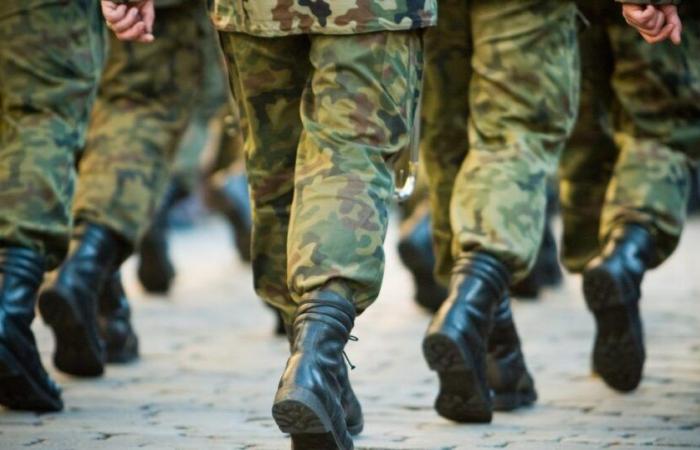According to the Financial Timesseveral hundred Yemenis are believed to be in Russia. This would confirm Putin’s desire to expand recruitment abroad in the face of extremely heavy losses.
Were Houthi mercenaries, a Shiite rebel movement in Yemen supported by Iran, sent to the Ukrainian front after being enlisted by Russia? “This information is not confirmed at the moment but it cannot be excluded”replies Russian orientalist Rouslan Souleïmanov, a good expert on Yemen who recently visited there.
“In a local context of colossal unemployment, Yemenis are ready for any type of work, including waging war. When I was there this summer, many Yemenis asked me if they could participate in the war on the Russian side.tells the expert Figaro. According to the Financial Timessome two hundred Houthis were recruited starting last July, sent to Russia, Nizhny Novgorod, on the Volga for minimal preparation before being sent to the front in Ukraine where many of them were reportedly killed.
Extremely heavy losses
“We are under bombardment, we do not have a single minute of respite,” says one of these men in a video that the FT. According to him, they would be used to build trenches and shelters in mine-infested areas. Such testimonies, if proven, would confirm Moscow’s desire to expand recruitment abroad in the face of extremely heavy losses – estimated at a thousand dead and wounded per day – in order to avoid a second wave of mobilization. , after that of September 2022.
These efforts have led in particular to the sending of Nepalese and Indian recruits to Russia, and the arrival of 12,000 North Korean soldiers in the Kursk region, partially occupied by Ukrainian forces since last August.
Two Houthi delegations received in Moscow
This reinforcement of fighters from the distant shores of the Gulf of Aden is part of the spectacular rapprochement that has taken place over the past three years between Moscow and the Houthi movement which controls around a third of Yemen’s territory, including the capital Sanaa. A country of 33 million inhabitants in the grip of a real humanitarian catastrophe, where six out of ten inhabitants live in extreme poverty and whose GDP has fallen by 54% since the start of the Houthi insurgency against the power of President Abdrabbo Mansour Madi, in 2014 – with the aim of displaying “fight against Western hegemony”.
For its part, Russia, after having held a diplomatic position of equidistance between the parties of this civil war, has clearly favored cooperation with the Houthis since 2022, particularly in the military domain. On February 21, 2022, three days before the invasion of Ukraine, the Houthis supported the Kremlin’s recognition of the independence of breakaway pro-Russian republics of Donetsk and Lugansk.
“Military cooperation between Russia and the Houthis is increasingly active. Russian military advisers are already present in Sanaa and Moscow is negotiating arms deliveries,” underlines Yemen specialist Ruslan Suleimanov. Since the beginning of 2024, two delegations from Ansar Allah, the official name of the Houthi movement, have been received in Moscow by Mikhail Bogdanov, Vladimir Putin’s special envoy for the Middle East. The information site Medusa also mentions the recent holding of secret negotiations in Tehran between Russians and Houthis on the supply of Russian weapons.
In fact, in their reports, UN Security Council experts recently recorded cases of attempted smuggling into Yemen of 9M133 Kornet anti-tank guided missiles, AKS20U assault rifles and other weapons with technical characteristics and markings similar to those produced in the Russian Federation.
The sulphurous arms dealer Viktor Bout is said to be in charge
According to the Wall Street Journal, the intermediary in the negotiations between the Kremlin and the Houthi rebels would be none other than the sulphurous arms dealer Viktor Bout, imprisoned in the United States from where he was extradited to Russia in 2022, in exchange for the release of the American basketball player Brittney Griner. Elements denied and described as “attempted information attacks” by Kremlin spokesperson Dmitri Peskov.
This cooperation between Moscow and the Houthis continues to worry Western intelligence services, especially since the return in October 2023 of the war in the Middle East in which the Yemeni rebels are fully engaged. Last September they fired a missile – “hypersonic”they affirmed – on Israel – a first.
Furthermore, the Houthis have launched a campaign of strikes against American and British ships cruising in the Gulf of Aden, a strategic area of prime importance for world trade where 12% of world oil production passes. However, still according to Wall Street Journal, Yemeni rebels were able to use data from Russian satellites, transmitted by Iranian intermediaries, to target boats in the Red Sea with ballistic missiles and drones.
2000 dollars monthly and a Russian passport
On the other hand, in an interview given to the newspaper Izvestia, a spokesperson for the Houthi movement assured that they did not plan to attack Russian – or Chinese – ships present in the Red Sea. “With Russia we can defeat America”proclaim the rebels, criticizing the blockade put in place against them by Saudi Arabia and the international maritime coalition organized by the United States which strikes rebel targets in Yemen, sometimes with the help of the United Kingdom.
Alongside these discussions on arms transfers, the recruitment of the mercenaries was allegedly carried out via a company registered in Oman and headed by an influential Houthi politician, Abdulwali Abdo Hassan al-Jabri, according to the FT. A company officially presented as a « tour operator » or operating in the distribution of pharmaceutical products… Abdullah, one of the Yemenis contacted by the British daily, says that they were promised a bonus of 10,000 dollars and 2,000 dollars monthly with the assurance of a Russian passport and a job in a drone factory. But once there, none of this would have proven true. Instead of work“security guard” or even” engineer “ that they were told, these men would have been sent to the front line, after having been forced to sign their contract “a gun to the head”.
“I signed because I was afraid,” Abdullah still testifies. But, he adds, “It was all lies, human trafficking.” According to sources cited by the FT, “several hundred” Yemenis are still believed to be in Russia. Abdullah was lucky. He is part of a group of eleven of his compatriots authorized to return to his country, via Oman, largely thanks to the action of the Federation of Yemeni Migrants, an organization which puts pressure on the authorities in Sanaa so that these fighters misfortunes are removed from the Ukrainian battlefield.






